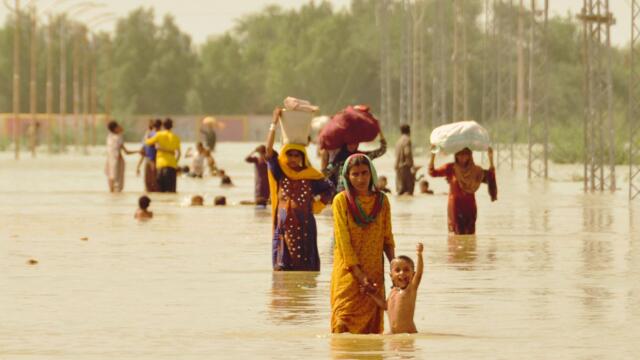- Blogs
- Punjab in Crisis: Floods, Recoveries, and Reform
Punjab in Crisis: Floods, Recoveries, and Reform

Alishba Tahreem Malik
Punjab, Pakistan's most populous and economically significant province, is going through one of the toughest periods in its recent history. There has been ruinous flooding across much of the province, forcing millions to flee, destroying livelihoods, and leading to economic uncertainty. Meanwhile, the government has been implementing governance reforms to improve institutions and deliver improved public services. The timing is both a reflection of the challenges of climate vulnerability and an imperative for structural reforms.
The August and September 2025 floods in Punjab are the worst in decades. Cataclysmic monsoon rains and water releases from upstream regions affected thousands of villages in districts like Multan, Jhang, Sialkot, Narowal, and Kasur. Over two million people were impacted, and close to one million people and half a million livestock were shifted to safer zones. Rice, sugarcane, maize, cotton, and vegetables have been destroyed, compromising food security as well as export value. The breadbasket of Pakistan, Punjab, has thus incurred a loss that will have lasting effects on the country's economy.
The provincial government and rescue teams, aided by the Pakistan Army, sent boats, drones, and helicopters to evacuate stranded families. Over a thousand relief camps were temporarily opened to house, feed, and give medical aid. Even then, relief camp conditions are still harsh. Overcrowding, inadequate sanitation facilities, and unavailability of clean drinking water have led to fears of water-borne and vector-borne illnesses. A surge in malaria, dengue, diarrhoea, and skin infections has been reported. The World Health Organisation and local authorities have warned of potential health emergencies if preventive measures are not scaled up.
Chief Minister Maryam Nawaz Sharif has supervised relief operations, visited flood-hit areas, and provided promising rehabilitation support. However, criticism persists from affected communities who claim that aid distribution is slow and insufficient. Most criticise that rural communities, especially farmers and wage workers, were made vulnerable without sufficient compensation for their losses. The floods also caused cross-border tensions, with water released by Indian dams aggravated flooding in some areas of Punjab. Nevertheless, in a rare gesture, both Indian and Pakistani governments collaborated briefly on humanitarian grounds, employing air transport and coordination channels to aid rescue efforts.
In the future, Punjab is challenged by twin imperatives: swift recovery from the floods and long-term fortification of governance systems. Recovery will involve fast-tracking health, food, and housing for the displaced and compensation for affected farmers and businesspeople whose livelihoods have been lost. Concurrently, investment in climate resilience, e.g., more robust embankments, upgraded drainage systems, and more efficient water management, will be needed to limit the effect of future floods.
Floods have, once again, brought out the province's vulnerability to climate change. As the food basket of Pakistan, the role of Punjab is that any shock in this area resonates at the national level. Simultaneously, sanitation, regulation, and law enforcement reforms indicate the province is attempting to lay a more robust governance model. The test will ensure that the reforms are not subordinated to the disaster but, rather, merged into the recovery planning.
Punjab stands at a crossroads. The floods have wrought havoc at large, but in doing so, they have also highlighted the significance of resilience, preparedness, and effective governance. The government needs to ensure relief and rehabilitation to all affected communities, while changes in sanitation, regulation, and policing need to continue being enforced effectively. With devoted leadership, effective policies, and people's involvement, Punjab can convert this time of crisis into an opportunity to forge a stronger and sustainable future.
Disclaimer: The views expressed in this article are solely those of the author and do not necessarily reflect the official stance of The Himalayan Research Institute Pakistan - (THRIP)
_________________________________
Alishba Tahreem Malik completed his undergraduate degree in International Relations, and is now doing M-Phil in Political Science from Government College University, Lahore, Pakistan
Contact us

Write with Us
The Himalayan Research Institute is proud to introduce "Himalayan," a dynamic and insightful magazin...
- [email protected]
- +923426470466
- website
